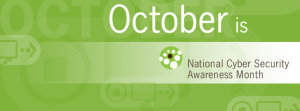How to Respond to a Data Breach
 Data breaches are becoming more and more frequent. And as an African-American you need to be afraid of this trend. Your information is being used to steal from you and others. Right now someone could be using your identity and credit to buy a new car or even a house. If this happens to you it could be a terrifying and life changing experience. And it all starts with a data breach.
Data breaches are becoming more and more frequent. And as an African-American you need to be afraid of this trend. Your information is being used to steal from you and others. Right now someone could be using your identity and credit to buy a new car or even a house. If this happens to you it could be a terrifying and life changing experience. And it all starts with a data breach.
How do you respond to protect yourself after a data breach? As I have said before, you need be ready, knowledgeable and focused on protecting yourself before and after a data breach. Here’s how.
1) First of all pay attention. Data breach fatigue is a serious issue. You cannot afford to dismiss or ignore any news of a data breach. Know who suffered the latest breach and how that could affect you. Ask yourself; have I done business with this company? What credit or debit card did I use? Have I checked my bank statement for suspicious charges? You should do that every night with all your bank and credit cards. And tell your friends and family.
2) Take action. If you discover that you have done business with a breached business call your bank or credit card provider and let them know right away. A good financial service provider may beat you to the punch and contact you first to issue a new card. If not ask for a new card and change all your PINs.
3) Accept help. Get the free identity and credit protection service that a breached company typically offers you. This has become standard industry practice. Home Depot has offered any customer who paid by card at any of its stores since April 2014 free protection.
4) Watch carefully. Request a 90-day fraud alert from the big three credit bureaus, Experian, Equifax and Transunion. Especially if your Social Security number was stolen in a breach. Request a note on your file so any credit application is more thoroughly verified for proper identity.
5) Put your information on lockdown. Put a security freeze on all your credit data. This means the credit bureaus can’t give it out without your permission. Again; this is especially important if your Social Security number was stolen.
6) Lock the doors. Change all your passwords and PINs. I said password didn’t I? Correction; use a pass phrase that looks like this ” 54%@Ed7HGb4r” Learn to do this and memorize it. And don’t use the same password at multiple sites, especially for accounts that involve your banking or credit card information.
7)Use two-factor authentication. Especially for banking sites and other financial services. Step up your game by using your bank’s two factor authentication system. Be for real, its your money we’re talking about. This step will make you jump through another hoop to log in. In most cases the website will send a text message with a passcode for your phone.
8) Watch your money. Check your bank and credit card statements as often or more than you check your social media account. Make a practice of checking your accounts every night before bed. It will help you sleep better. And look for strange small charges. That’s how a thief tests the system.
9) Set up alerts. Make sure to set up alerts with your bank or credit card provider for any unusual purchases. Set a purchase limit so that any large charge is immediately flagged and you are notified. Some banks offer out of area alerts as well. This way you can know immediately of any funny business.
Don’t pretend that data breaches don’t affect you. Its likely that your data has already been stolen and is sitting on a cyber black market somewhere waiting to be bought and sold. Learn what it takes to fight back after a data breach and be ready to act.
Now you know.






